Civil Liberties, Human Rights, Human Trafficking, Illegal Immigration
Podcast: Play in new window | Download
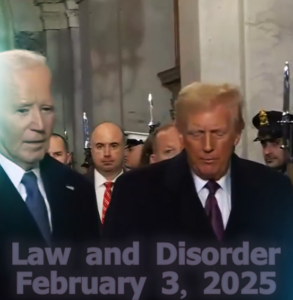

A Golden Age of Oligarchs
Last month, Elon Musk said something about the Trump election with which we agree. He said “this was no ordinary victory. This was a fork in the road of human civilization.“ How true. Now our democracy, however, restricted by class and race, is in the process of being replaced by a super wealthy oligarchy. There are more than 800 billionaires in the United States. They are now in the saddle.
The Citizens United Supreme Court case of 2010 eased the process. Trump was elected with money, truly big money from 10 people. Elon Musk alone contributed $277 million. Biden himself in his farewell address warned of the takeover by an oligarchy. Echoing President Eisenhower‘s famous warning of a military industrial complex, Biden talked about the “tech industrial complex.“
This second Trump term will not be like the first. It won’t be incoherent and chaotic. This has been guaranteed by the Heritage Foundation which wrote a 920 page playbook for dismantling democracy.
The process has begun with Trump pulling out of the Paris Climate Accord and calling for more drilling. “Drill baby drill” is his mantra. This is a race towards human extinction. On January 21st he pulled out of the World Health Organization. The day he was sworn in he pardoned some 1500 people who participated, and even lead the January 6th insurrection. This is a greenlight for fascist mobs who now must feel they can get away with anything.
The Democratic Party has greased the skids for this transition. It cannot be relied on for the defense of the American people. Biden and Harris after accurately calling Trump a fascist to the last few weeks of the election, then did an about face welcoming him in to the White House saying they would cooperate with him and praising the peaceful transition, a transition that Trump if he lost promised not to abide by.
Guest – Chris Hedges, the journalist and author spent two decades as a foreign correspondent serving as the Middle East Bureau Chief and Balkan Bureau Chief for The New York Times where he was awarded the Pulitzer Prize. He is the author of 14 books including War is a Force That Gives us Meaning, Days of Destruction, Days of Revolt, which he co-wrote with the cartoonist Joe Sacco, and The Death of the Liberal Class. Chris’ forthcoming book is titled A Genocide Foretold.
—-
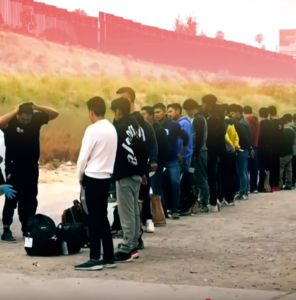

Resistance Continues As Mass Deportation Plan Ramps Up
Well, it’s begun. Trump’s plan to deport millions of immigrants back to their home countries, or if need be, elsewhere, began in earnest in Chicago last week, and in other places, as well. A relatively small number were rounded up, including a few U.S. citizens. I guess they just didn’t look “American” enough to escape an initial arrest. An even larger number of immigrants left voluntarily, too frightened to stay. Chicago, being a “sanctuary city” its local policing officials refused to help in the round ups and expulsions. That of course, brought threats from the Trump Administration that they, and any others in the country who did not fully cooperate with federal ICE officials and cops during such raids, might be prosecuted.
Of course, Trump and his loyal sycophants were quick to take to the airwaves in defense of the round up with their bogus charges that immigrants are criminals and are taking jobs from real Americans. Never mind that the crime rate for undocumented immigrants is much lower than for us “real Americans,” and that the vast majority of the jobs they do are mainly jobs most Americans simply will not do.
So, to review the new deportation plans of the Trump Administration, its methods of operation, its likely costs, its likely success rate, and the threats of prosecuting anyone who interferes with the effort, or in the case of local officials who won’t cooperate with it, we are pleased to have with us today a leading expert on all matters having to do with the plight of immigrants in America and the new effort to deport millions of them,
Guest – attorney Victor Narro is a nationally known expert on immigrant rights and low-wage workers, and has been involved in these efforts for over 40 years now. He is currently a Project Director for the UCLA Labor Center and Core Faculty for the UCLA Department of Labor Studies, where he teaches classes that focus on immigrant rights, social justice and the labor movement. And Victor Narro is also Core Faculty for the Public Interest Law Program at UCLA School of Law. Victor Narro’s latest book is The Activist Spirit—Towards a Radical Solidarity, published by Hard Ball Press.

———————-
Civil Rights, Human Rights, Human Trafficking, Immigration
Podcast: Play in new window | Download
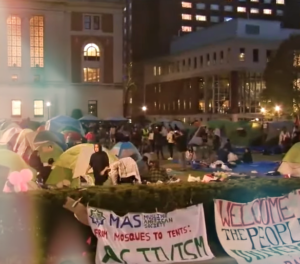

Attacking Those In Academia Who Condemn The Israel-Gaza War
All across this country, academic freedom is once again under severe attack. Why?…because at colleges and universities, professors who dare to speak out in defense of the Palestinian people and condemn Israel’s genocidal war against the Palestinian people, are being censored, disciplined and fired. These attacks on academic freedom are not limited to actions by university administrators, but include those by the federal government, as well. Visiting scholars, adjuncts and lecturers without tenure have also had their contracts terminated, or not renewed. Some had their classes suddenly cancelled. Faculty members who espouse views contrary to official U.S. policy vis-a-vis the Israeli/U.S. war in Palestine have been criticized in ways that have trampled on their reputations and hurt their careers. As an excuse for this present-day McCarthyism, college and university administrators often claim their censorious actions are undertaken only on behalf of ensuring their Jewish students feel “safe” on campus. But there is a distinct lack of evidence to support their claimed motivation. And, in fact, the largest pro-Palestinian actions on campuses are generally organized by Jewish groups, such as Jewish Voice for Peace.
So today we’ve invited a professor from the University of Michigan to join us. We’ll ask him about McCarthy-styled witch hunts against academic personnel, both in the past and again today. Learn how federal law is being misused as a mechanism of political repression against academia. And discuss the role that controversy over slogans condemning Zionism play in this new attack on academic freedom, and what strategies are best employed today by the anti-war movement in its fight back against these attacks, as the ever more deadly Israeli/U.S. war in Palestine continues.
Guest – Professor Alan Wald, the H. Chandler Davis Collegiate Professor Emeritus at the University of Michigan. Prof. Wald has authored eight books related to today’s topic. He has been a socialist scholar since the 1960’s, and is currently an editor of the journal Against the Current, as well as a member of the editorial board of Science and Society. And Prof. Wald was a founder of the University of Michigan’s Faculty and Staff for Justice in Palestine committee.
—-
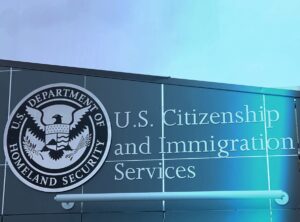
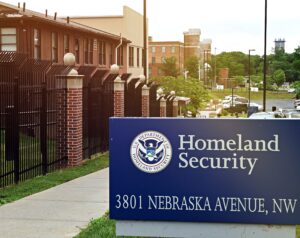
New Leadership Within The Department of Homeland Security
The Department of Homeland Security was created in 2002. Trump has nominated Kristi Neer, the Governor of South Dakota, to be its new head. The DHS has consolidated previous separate departments and brought into a single sprawling entity 22 pre-existing agencies. It became the nation’s third largest government department. Today it has a budget of over $100 billion and employs a quarter of a million people. Every danger is now conceived as a threat to homeland security.
As governor, Neer sent South Dakota National Guard troops to Texas eight times to fight what she called “the Biden border crisis”.
Trump said, “she will work closely with “Border Tsar” Tom Holman to secure the border and will guarantee that our American homeland is secure from our adversaries.”
Neer said, “I look forward to working with Border Tsar Tom Homan to make America safe again. With Donald Trump, we will secure the border, and restore safety to American communities, so that families will again have an opportunity to pursue the American dream”.
In 2017 she supported the Trump Muslim travel ban. In 2021 she opposed Afghan refugees coming into South Dakota.
In her memoir, she wrote about how she shot and killed her fourteen month old dog “Cricket” because he was not a good hunter.
Guest – Arun Kundnani, a Philadelphia based writer who moved from London to the U.S. in 2010. He has recently co-authored the pamphlet, Homeland Security: Myths and Monsters. His books include What is Anti-racism? And Why it Means Anti-capitalism, The Muslims Are Coming, and The End of Tolerance. A former editor of the journal Race and Class, Kundnani has been described by the Guardian newspaper as “one of Britain’s best political writers.“

—————————
genocide, Human Rights, Human Trafficking, Truth to Power, War Resister
Podcast: Play in new window | Download
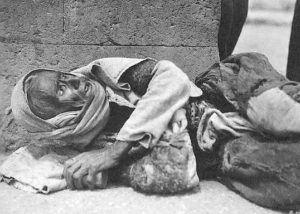
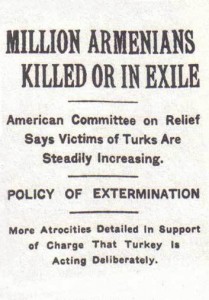
It Was Genocide: Armenian Survivor Stories
Around the world, April 24 marks the observance of the Armenian Genocide. On that day in 1915 the Interior Minister of the Ottoman Empire ordered the arrest and hangings of Armenian intellectuals and community leaders in Constantinople. It was the beginning of a systematic and well-documented plan to eliminate the Armenians, who were Christian, and who had been under Ottoman rule and treated as second class citizens since the 15th century.
The unspeakable and gruesome nature of the killings—beheadings of groups of babies, dismemberments, mass burnings, mass drownings, use of toxic gas, lethal injections of morphine or injections with the blood of typhoid fever patients—render oral histories particularly difficult for survivors of the victims.
Why did this happen? Despite being deemed inferior to Turkish Muslims, the Armenian community had attained a prestigious position in the Ottoman Empire and the central authorities there grew apprehensive of their power and longing for a homeland. The concerted plan of deportation and extermination was effected, in large part, because World War I demanded the involvement and concern of potential allied countries. As the writer Grigoris Balakian wrote, the war provided the Turkish government “their sole opportunity, one unprecedented” to exploit the chaos of war in order to carry out their extermination plan.
As Armenians escaped to several countries, including the United States, a number came to New Britain, Connecticut in 1892 to work in the factories of what was then known as the hardware capital of the world. By 1940 nearly 3,000 Armenians lived there in a tight-knit community.
Pope Frances calls it a duty not to forget “the senseless slaughter” of an estimated one and a half million Armenians by the Ottoman Turks from 1915 to 1923. “Concealing or denying evil is like allowing a wound to keep bleeding without bandaging it,” the Pope said just two weeks before the 100th anniversary of the systematic implementation of a plan to exterminate the Armenian race.
Special thanks to Jennie Garabedian, Arthur Sheverdian, Ruth Swisher, Harry Mazadoorian, and Roxie Maljanian. Produced and written by Heidi Boghosian and Geoff Brady.

—————————————–
Civil Liberties, Human Rights, Human Trafficking, Political Prisoner, Prison Industry
Podcast: Play in new window | Download
—-
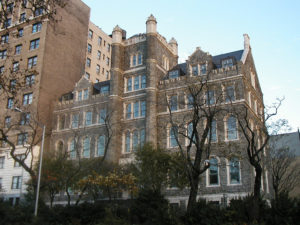
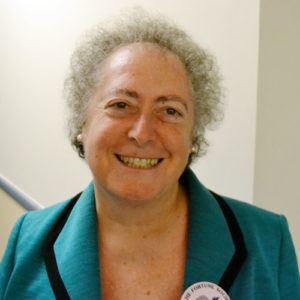
Joanne Page: The Fortune Society
Each year in the United States, more than 600,000 individuals are released from state and federal prisons. A staggering 6.9 million people are on probation, in jail, in prison, or on parole. On top of that, an additional nine million persons cycle through local jails.
As grim as these numbers are, more sobering is the fact that more than two-thirds of prisoners are rearrested within 3 years of their release. Half of those are reincarcerated.
Why is this recidivism rate so high? It has much to do with the failure of re-entry support programs. We have the world’s largest carceral state but no effective support system for people finishing their sentences and re-entering society. Consequently, crime rates soar, more individuals are victims of crime, families and communities suffer when we fail to deal with the consequences of over-incarceration. When reentry fails, the costs are high — more crime, more victims, and more pressure on already-strained state and municipal budgets. There is also more family distress and community instability. Community reintegration impacts several larger areas such as community health, education, employment, family relationships and housing.
In every aspect, failure to support recently released individuals is costly to society.
Guest – JoAnne Page is the President and CEO of the NY-based Fortune Society. Policymakers and researchers frequently cite the organization for its pioneering work. A graduate of Yale Law School, Page cultivated and created many of Fortune’s signature programs including substance abuse treatment, counseling, family services, HIV/AIDS health services, mental health programs, job training and employment services, parenting initiatives, and supportive and permanent housing. Page is a leading authority on issues including prison reform, solitary confinement, wrongful convictions, the over-incarceration of young men of color, sentencing reform, violence prevention, homeless housing, effective policing strategies, legislation, sex offender registries, and more.
—-
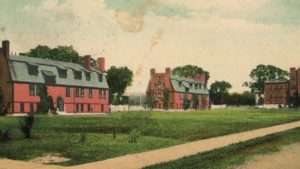
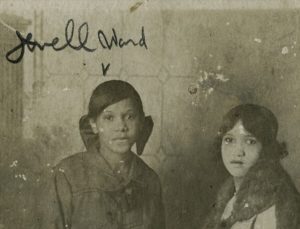
Alison Cornyn: The Incorrigibles
People in America are currently living through multiple crises. The economy is in tatters with unemployment very high. The health situation is a disaster with over a third of 1 million people dead from Covid and tens of millions uninsured.
The educational system has been ravaged, underfunded, inflicted with charter schools. Billionaire right-wing secretary of Education Betsy DeVos has only recently resigned. Almost half of the population is living in poverty. Families are in bad shape with suicides, drug addiction, and divorces soaring. Many don’t have enough food and homelessness is rapidly increasing. All this within the framework of a divided society, deeply impacted by racism.
How does this affect young people? And especially rebellious teenage girls? What laws apply to young people? How are they treated in a criminal justice system, historically and currently? What do we know about the level of abuse and neglect including sexual abuse?
Guest – Alison Cornyn, is a Brooklyn-based interdisciplinary artist, activist, and educator. She has focused her career on social justice issues. A special interest of Allison Cornyn’s has been the criminal justice system treatment of “wayward” teenage girls. She has focused her career on social justice issues and teaches in New York at the School of Visual Art’s Design for Social Innovation Program.
——————————–
Human Rights, Human Trafficking, Political Prisoner, Truth to Power
Podcast: Play in new window | Download

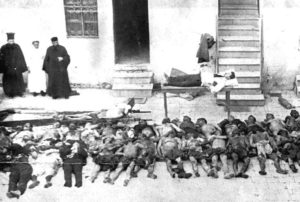
Speaking In Turkish: Denying the Armenian Genocide
Around the world, April 24 marks the observance of the Armenian Genocide. On that day in 1915 the Interior Minister of the Ottoman Empire ordered the arrest and hangings of Armenian intellectuals and community leaders in Constantinople. It was the beginning of a systematic and well-documented plan to eliminate the Armenians, who were Christian, and who had been under Ottoman rule and treated as second class citizens since the 15th century.
The unspeakable and gruesome nature of the killings—beheadings of groups of babies, dismemberments, mass burnings, mass drownings, use of toxic gas, lethal injections of morphine or injections with the blood of typhoid fever patients—render oral histories particularly difficult for survivors of the victims.
Why did this happen? Despite being deemed inferior to Turkish Muslims, the Armenian community had attained a prestigious position in the Ottoman Empire and the central authorities there grew apprehensive of their power and longing for a homeland. The concerted plan of deportation and extermination was effected, in large part, because World War I demanded the involvement and concern of potential allied countries. As the writer Grigoris Balakian wrote, the war provided the Turkish government “their sole opportunity, one unprecedented” to exploit the chaos of war in order to carry out their extermination plan.
As Armenians escaped to several countries, including the United States, a number came to New Britain, Connecticut in 1892 to work in the factories of what was then known as the hardware capital of the world. By 1940 nearly 3,000 Armenians lived there in a tight-knit community.
Pope Frances calls it a duty not to forget “the senseless slaughter” of an estimated one and a half million Armenians by the Ottoman Turks from 1915 to 1923. “Concealing or denying evil is like allowing a wound to keep bleeding without bandaging it,” the Pope said just two weeks before the 100th anniversary of the systematic implementation of a plan to exterminate the Armenian race.
Special thanks to Jennie Garabedian, Arthur Sheverdian, Ruth Swisher, Harry Mazadoorian, and Roxie Maljanian. Produced and written by Heidi Boghosian and Geoff Brady.
Civil Liberties, Human Rights, Human Trafficking
Podcast: Play in new window | Download
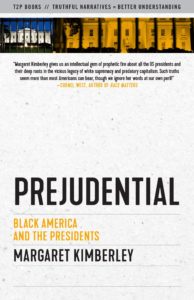

Prejudential: Black America and the Presidents
America was settled and set up as a slave owning country. When it broke free of England it was finally able to expand westward, across the Appalachian mountains, committing genocide against the native Indian population. This is the sordid and hidden root history that truth telling historians have revealed to us.
In her new book Prejudential: Black America and the Presidents, author Margaret Kimberley explores America’s relationship with race through the lens of the presidents who have been chosen to represent all the people.
Ten of the 12 initial presidents of the USA were slave owners. Andrew Jackson, whose picture graces our twenty dollar bill, was an Indian killer. Lincoln was never an abolitionist. He wanted America for white people only and had a plan to send the formerly enslaved out of the country. One such plan briefly came to fruition in Haiti.
What about Presidents Roosevelt, Johnson, Clinton and Obama? Were they more sympathetic to the interest of black Americans?
Guest – Margaret Kimberley, a New York-based writer and activist. She has been an editor and senior columnist for Black Agenda Report since it’s inception in 2006. She is a contributor to the anthology In Defense of Julian Assange.
—-
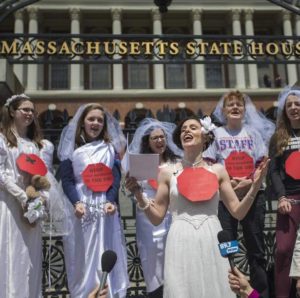
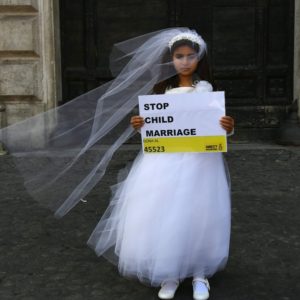
Unchained At Last: Unarrange A Marriage; Rearrange A Life
Worldwide, increasing numbers of women and men are putting off marriage until they are older. Many are forgoing it altogether. In Denmark, for example, among women in their late 30s or early 40s, 29 percent are unmarried. That’s true for 18 percent in Italy, 22 percent in Lebanon; and 32 percent in Libya.
That’s why the following statistic is so shocking: Each year, before they reach the age of 18, 12 million girls will marry. It happens in every country, and cuts across religions, ethnic, and cultural divides. Over 650 million women alive today were married as girls.
Child marriage is a human rights violation. It places girls’ well-being and personal development at risk. Child brides are often isolated and feel disempowered. They are deprived of their fundamental rights to health, education and safety. Children aren’t physically or emotionally ready to become wives and mothers.
They have heightened health risks, from life-threatening complications in pregnancy and childbirth, to being victims of domestic violence or of contracting HIV/AIDS. They have limited access to education and economic opportunities, and a higher chance of living in poverty.
Guest – Fraidy Reiss, the founder and executive director of Unchained at Last. The nonprofit helps girls and women plan escapes from forced marriages and then rebuild their lives.
———————————-

———————————-




















